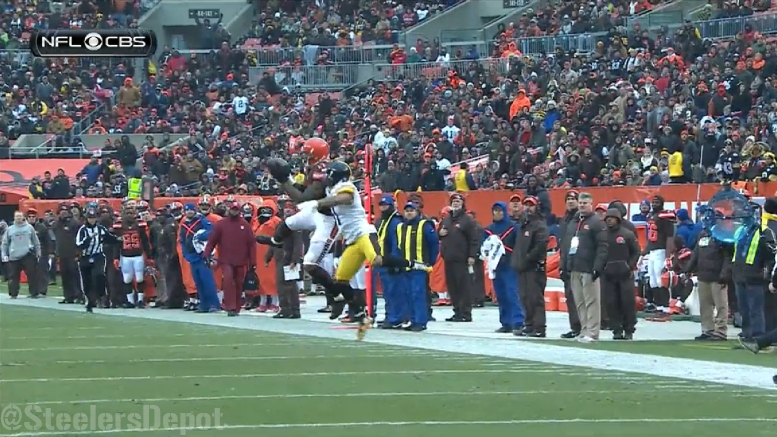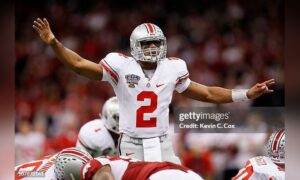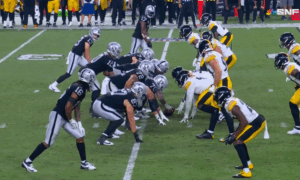The Cleveland Browns saw a breakout campaign from wide receiver Terrelle Pryor during the 2016 season, during which he gained over 1000 receiving yards in spite of the fact that he was targeted by no fewer than five different quarterbacks, and was even asked to throw a few passes himself—he was, of course, a former quarterback.
Following his breakout year, instead of re-signing him and watching him develop in his second full campaign as a wide receiver, the Browns chose to replace him with Kenny Britt, a 28-year-old former first-round draft pick who, while finding some success last year and over the length of his career, has undoubtedly plateaued.
This unfortunately reminds me of several moves from previous Browns regimes that did not work out well, during which they have chosen to replace promising younger prospects of their own in order to sign veteran replacements at the same position, as when they allowed T.J. Ward to leave while signing Donte Whitner to replace him.
Britt is no slouch, of course, and he did have arguably his best season a year ago, even if it isn’t saying a whole lot, recording his first 1000-yard season in his nine years and catching at least five touchdown passes for the second time.
This was all with sub-par play at the quarterback position, it should be noted, but the fact of the matter is that nobody could rival the Browns during the 2016 season in sub-par quarterback play, so if we were to compare the two based on that factor, Pryor would have the advantage anyway.
The most perplexing facet of this exchange is the fact that Pryor didn’t exactly sign for a blockbuster contract. He was given just a one-year contract by Washington that is worth a maximum of $8 million, and that is including $2 million in incentives.
Those incentives will not be givens, either, though some he will no doubt reach. They related to receptions, receiving yards, and touchdowns, with escalating values. To put it simply, to earn the full $2 million, he would need to record 80 receptions for 1250 yards and 10 touchdowns. He was short of all of those marks last year, but would have earned $750,000 worth of those incentives.
The Browns, meanwhile, gave Britt, who will be 29 in September, a four-year contract worth $32.5 million—or just over $8 million per season on average, with $10.5 million guaranteed at signing and another $6.5 guaranteed should he reach 2018.
Were I to choose between the two, I would take the developmental Pryor on a one-year contract over Britt, who has already established his identity, and, essentially, his ceiling, at the position, for a four-year contract. Unless they had another reason for not re-signing him, it seems to me wasteful to have put in the effort to develop him at the position that just got him paid.








